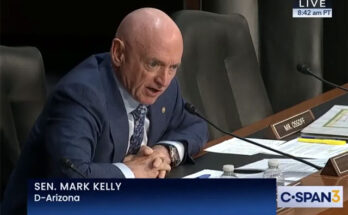Jon Johnson File Photo/Gila Herald: A Maricopa County Superior Court Judge has struck down Proposition 208, which funding was set to begin next month with the April 15 tax deadline and provide hundreds of millions for education.
By Jon Johnson
PHOENIX – On Friday, a Maricopa County Superior Court Judge gave the death knell to controversial Proposition 208, which would have increased the income tax rate for high earners by 3.5% to help fund education and increase teacher and support personnel salaries.
Proposition 208 was passed by just 51.7% of the vote in the November 2020 election. The proposition increased the income tax by 3.5% for individuals with a taxable income of more than $250,000 and $500,000 or more for joint filers.
In August 2021, the Arizona Supreme Court ruled the proposition was mostly unconstitutional, yet left it up to a lower court to decide if the money the tax would generate would exceed the spending limit for education. That limit is set by the Education Expenditure Clause of the Arizona Constitution. On Friday, Maricopa County Superior Court Judge John Hannah issued a ruling that the funding did exceed the limit.
“This Court understands the remand order as a direction to declare Proposition 208 unconstitutional in its entirety and to enjoin its operation permanently, if the Court finds as a fact that the annual education spending limits imposed by the Arizona Constitution will prevent Arizona’s public schools from spending a ‘material’ amount of Proposition 208 tax revenue in 2023,” Hannah wrote. “On that basis, the Court is obligated to strike down Proposition 208.”
The ruling came just in time for this tax season, as the deadline to file is April 15. According to projections, the tax was estimated to raise $289 million in its first year and ultimately increase to $800 million to $1 billion per year for education spending – had the court not struck it down.
Arizona Governor Doug Ducey and Arizona House Republicans applauded the court’s ruling. House Speaker Rusty Bowers and Majority Leader Ben Toma hailed the decision.
“We are very pleased with today’s long-awaited decision declaring Proposition 208 unconstitutional,” a release from Bowers and Toma stated. “This decisive victory will save Arizona taxpayers hundreds of millions of dollars and help keep Arizona’s economy dynamic and competitive. At the same time, Republicans continue to lead the way on improving educational opportunities for Arizona students, increasing state-level funding for district and charter schools by $2.5 billion in the last five years alone, while also expanding school choice.”
“The ruling is a win for Arizona taxpayers,” Ducey said in a release. “It’s another step in undoing the damage of Prop. 208 and making sure we continue to benefit from having the lowest flat income tax rate in the nation.”
While the business community and Republican lawmakers were quick to praise the court’s ruling, Arizona Schools Superintendent Kathy Hoffman and Democrat lawmakers questioned where funding for schools would come from.
“How will we ensure our students have high-quality educators at the front of the classroom?” Hoffman questioned on Twitter. “How will we remain competitive when our neighboring states have increased teacher pay?”
“Republicans continue to attack our schools, teachers, and students, despite a majority of Arizonans making it clear they want investments in our public education,” Senate Democratic leader Rebecca Rios stated. “The initiative was expected to raise over $800 million a year for K-12 education. Instead, Arizona schools will remain stuck at the bottom of the nation.”
An appeal is technically still possible, and Governor Ducey said they are prepared for that situation.
“While we expect the ruling may be appealed, we are confident the Arizona Supreme Court will find 208 unconstitutional, as they did last year. Arizona is – and will remain – a state that knows how to prioritize education while keeping taxes low and attracting jobs.”









